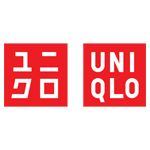What Is the Jobs Growth Incentive (JGI)?
The Jobs Growth Incentive (JGI) is a scheme introduced by the Singapore government in 2020 to support companies in retaining and creating job opportunities during the COVID-19 pandemic. It helped businesses retain local employees and hire new workers by providing wage subsidies for up to one year.
This was one of many initiatives launched by the Inland Revenue Authority of Singapore (IRAS) in response to the economic hardships of widespread lockdowns. Applications were open for multiple years – from September 2020 to March 2023. The last JGI payout went out in December 2023.
Who Was Eligible for the JGI?
The Jobs Growth Incentive was specially designed to enrich and support local workers in Singapore. The IRAS defines these individuals as official citizens and Permanent Residents. Coverage terms varied based on when the employee was hired and the characteristics of their job.
Only employers who made timely contributions to the Central Provident Fund (CPF) were eligible for wage subsidies under the JGI. They must have also satisfied two conditions pertaining to workforce growth; an increase in overall local staff during the prescribed time period and an increase in local staff earning gross wages of at least $1,400 per month.
In this context, gross monthly wages are defined as basic wages plus local employee mandatory CPF contributions.
Who Wasn't Eligible for the JGI?
In addition to qualifying criteria, the Singaporean government outlined a list of cases where entities would not be eligible for the JGI. These include unregistered local or foreign entities, foreign military units, and representative offices of various organisations such as foreign companies, government agencies, trade associations/chambers/non-profit organisations/law practices. Eligibility for coverage also depended on the phase in which the employer was established; newer businesses were only eligible for the JGI in later phases.
What Are the Specific Benefits of the JGI for Employers?
Upon its initial rollout, JGO-eligible employers could claim up to 25% of the first $5,000 of their new local hires’ monthly wages. The coverage amount increased to 50% for workers over 40 years of age, as well as for employees with disabilities.
As COVID-19 persisted beyond the original 12-month period, the government updated the scheme’s qualifying windows and criteria several times. Wage coverage increased and decreased based on the pandemic’s real-time impacts on the Singaporean economy.
By the final phase in October 2022 to March 2023, JGI payments were only available for employees over 40 years of age who had not worked for the preceding six months, people with disabilities, and ex-offenders. Employers received six months of coverage at 20% of monthly wages – a significant decrease from 2020 levels.
How Can One Apply for JGI?
The Jobs Growth Incentive program officially shut down at the end of 2023. When the program was in place, employers did not need to formally apply for Jobs Growth Incentive payments. Those who were eligible should have automatically received payouts based on their monthly CPF contributions.
The IRAS is no longer accepting applications for funding, and those who were notified of eligibility but have yet to receive payment have until March 31st, 2024 to arrange for payment. Any unclaimed benefits are forfeited to the government.
Do Job Growth Incentive Payments Change If an Employee Leaves Their Position?
Job Growth Incentive payouts were set to be adjusted downwards if any existing local employees leave their positions after September 2021. This is to encourage employers to retain their current local workforce, as the success of the JGI scheme relies on job creation and retention.
According to information found on the government’s website, the adjustment factor is based on the ratio of existing local employees who have left the employer to the total number of existing local employees as of September 2021, or 5%, whichever is higher. This means that if more existing local employees leave the employer, the adjustment factor will be higher.
Is the Jobs Growth Incentive Taxable?
Yes, the Jobs Growth Incentive payments are considered taxable income and will be subject to normal income tax rates. Employers should include these amounts in their employees’ pay slips and CPF contributions for the relevant calendar year, as well as declare them in their annual tax return to the IRAS.
It is important for employers to keep track of all Jobs Growth Incentive payments and properly declare them to avoid any penalties or legal consequences. They should also inform their employees about the tax implications of these payments so that they can properly report them in their personal income tax returns.













